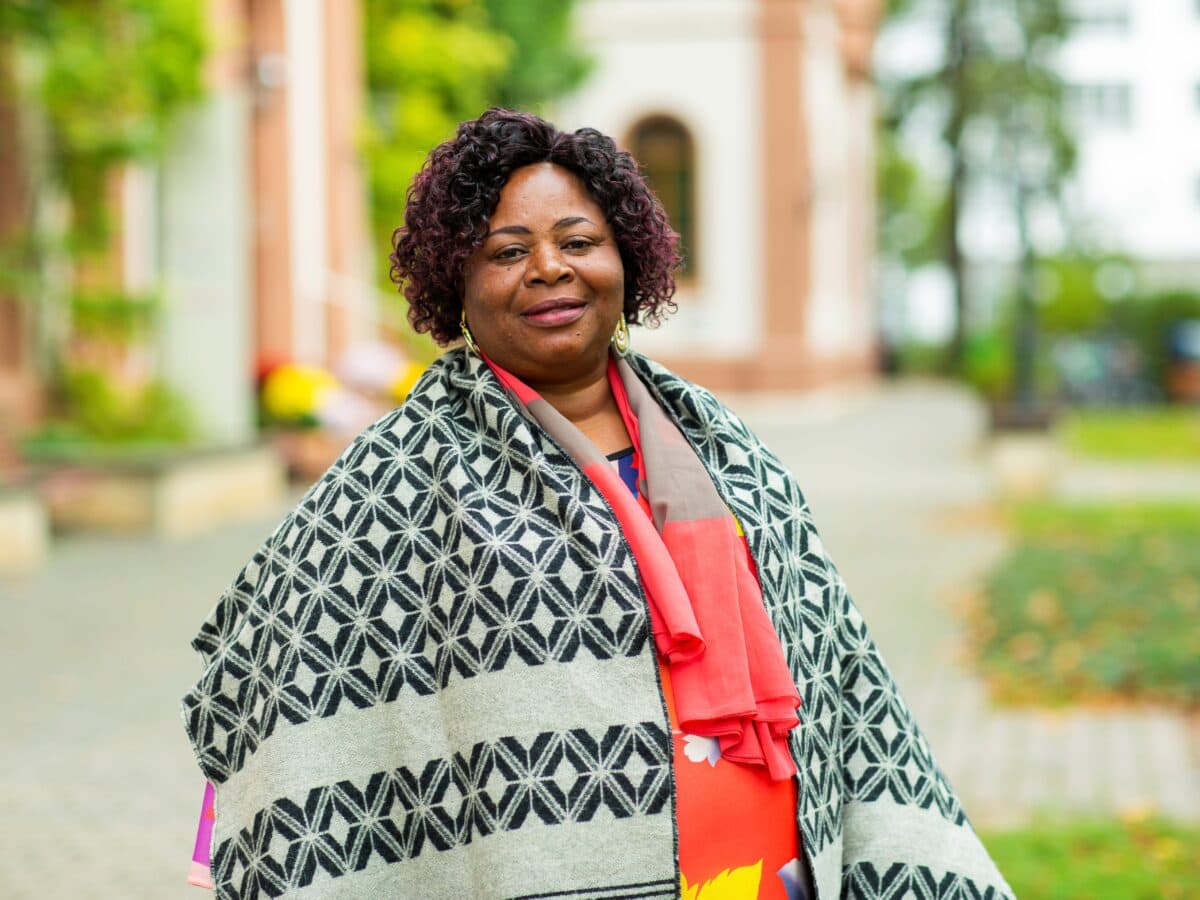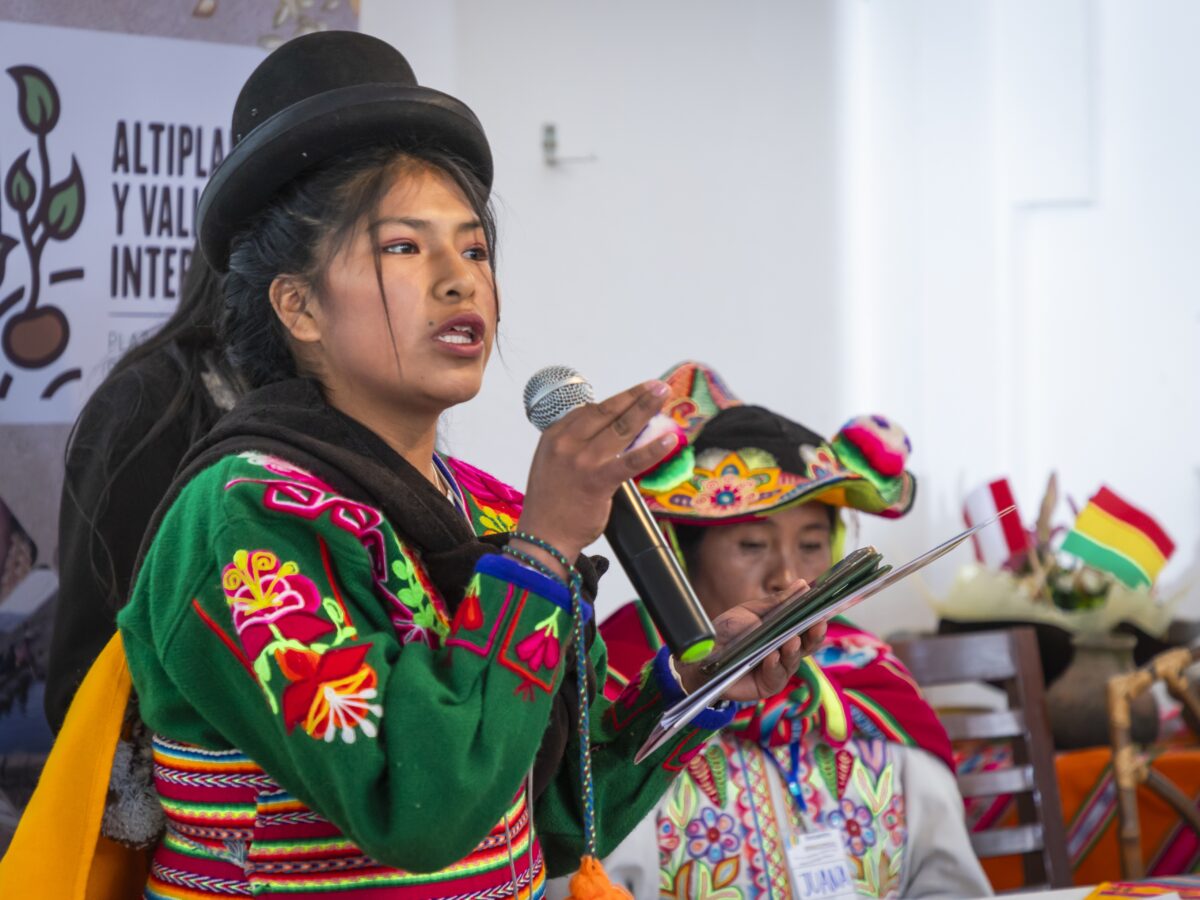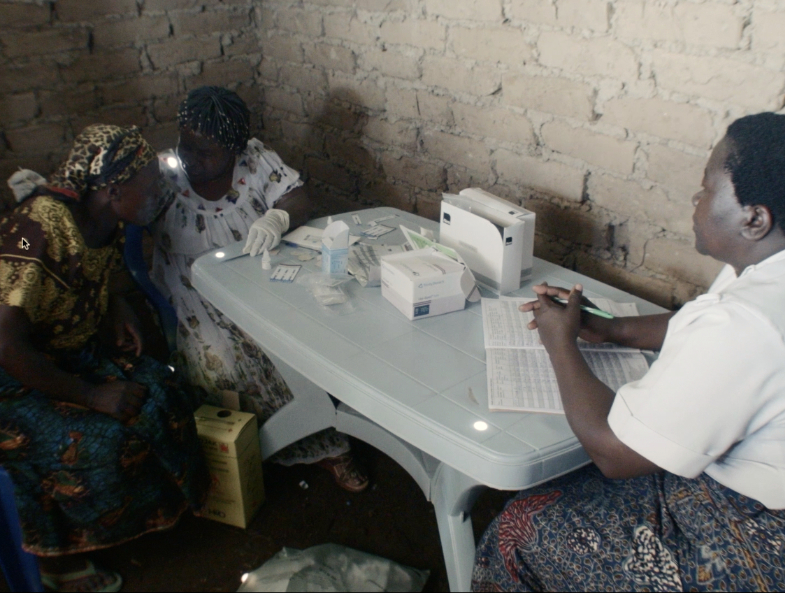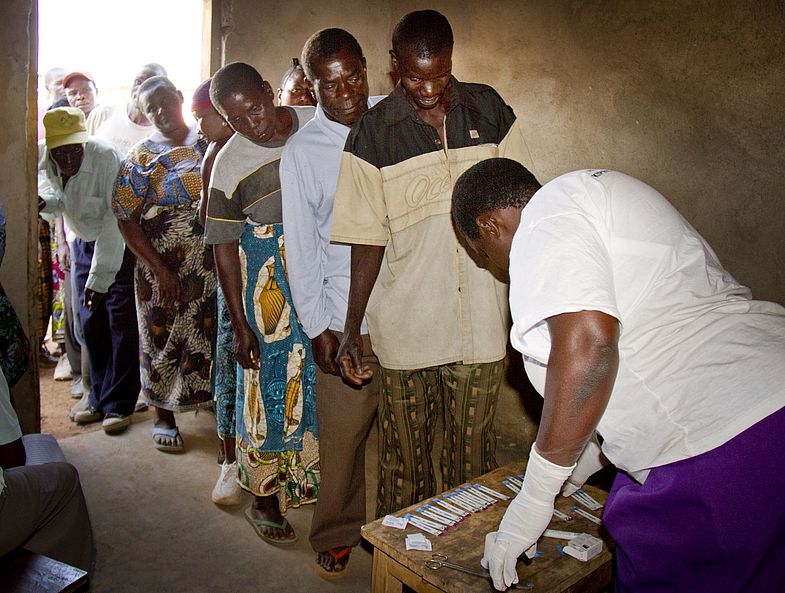Rebecca Mfutila from the Democratic Republic of Congo will be awarded the Swiss Sylvia Michel Prize 2022 Awarded. Rebecca Mfutila leads the Women's Federation of our Partner church in the DR Congo. In this interview, she talks about the situation of local women and the fight against child malnutrition in her home country, the Kwango region.
Rebecca Mfutila, you are the recipient of the Sylvia Michel Award 2022, which supports projects that prepare women for leadership positions in Reformed churches. What does the award mean to you?
The award is an encouragement. For me personally, but also for the women in the DR Congo. They are too often not noticed. This prize honors them.
You were the first woman in your church to take a leadership position. How did that come about?
Yes, I am the first theologian and first ordained pastor in the Communauté Evangelique du Kwango (CEK). The road has not been easy. First, one of the top leaders of our church said that in her lifetime there would be no woman ordained in the CEK. But I fought and won. I am now in charge of my own parish and president of the Women's Federation of the CEK.
Mission 21 heartily congratulates Rebecca Mfutila on receiving the Sylvia Michel Award 2022. This international award from the Evangelical Church of Switzerland (EKS) and the World Alliance of Reformed Churches (WARC) is an important recognition for the promotion of women in leadership positions. Mission 21 has supported the women's work of the Communauté Evangélique du Kwango for years and is pleased to see this support bear fruit. Around the world, Mission 21 is involved in numerous programs and projects to promote gender justice and the position of women in church and society.
How did you convince the leader in the church?
My way of doing things convinced him. The pastorate is a calling and a vocation. Since my youth, I had the desire to serve God. My commitment and knowledge convinced the church leaders to send me to study theology.
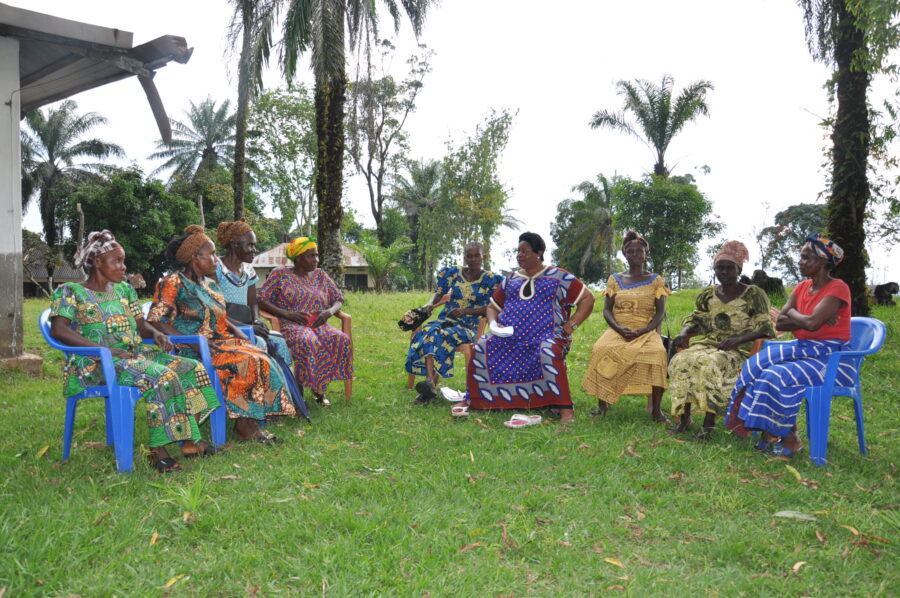
Why was a woman pastor unthinkable at first?
For most in our church, it is important to keep things as they are. Women are not meant to be pastors. But some leaders have changed their minds.
The Sylvia Michel Award supports projects that prepare women for leadership positions in Reformed churches. To what extent can you prepare other women for such a position?
We need a lot of time to raise awareness. People need to understand and accept that women are made by God just as much as men and have all the necessary abilities to take active responsibility. It is a long struggle, but progress is being made.
Are there role models?
There are not many, but they do exist. In some schools, women hold the position of principal. I also see myself as a role model.
How much is it about preparing women and how much is it about working with the men who have held and given most of the leadership positions to date?
Both must make progress together. Women must not be afraid of men. We must defend our rights. And it needs a lot of talks.
They are also active at grassroots level. For example, at the "Centre de Malnutrition" in Kasongo Lunda in the DR Congo. Can you tell us something about that?
At the center, we care for malnourished children and sometimes the mothers as well. In the Kwango region malnutrition is a big problem, which is getting worse and worse. (More about the work of the Women's Federation here: Empowering Women in the Kwango and Kinshasa Slums - Mission 21 (mission-21.org)
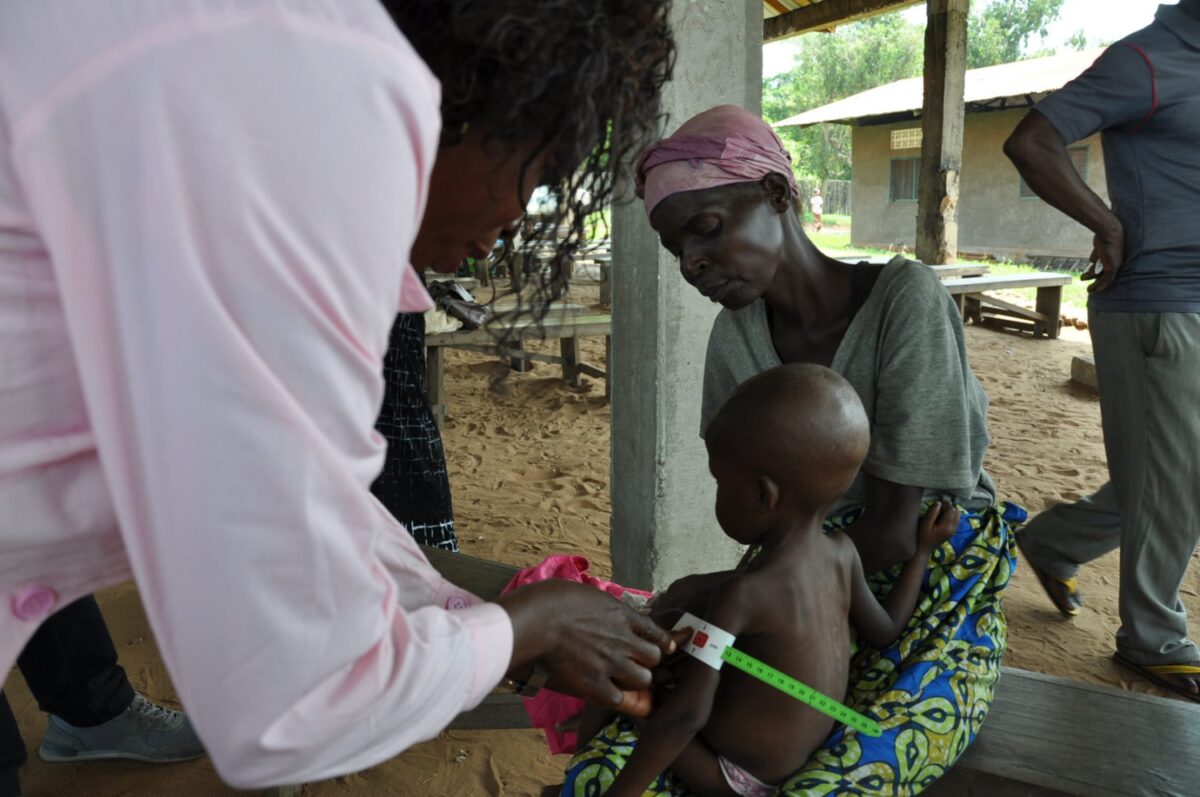
Why is that?
For several years we have been feeling the climate change and climate change. The earth has dried out and is not as fertile as it used to be, the seeds are not of good quality. People have difficulties to grow enough food. At the same time, the population is growing rapidly. So more and more people are encountering a situation where there is less and less food. Children up to the age of five are particularly affected by malnutrition. Pregnant women and mothers also suffer. We women from the Women's Federation have formed a group and opened the "Centre de Malnutrition" with our own small financial contributions. Here we can feed 100 children. They come twice a week. We provide them with food and medical care. Fortunately, we have volunteers who help out, including professional nurses.
It must be hard to see these children. How do you deal with it?
With just a few resources we can do something, but still we are sometimes desperate. The problem is: there are so many children who are malnourished, but we can only support 100 of them at the moment. It is hard to see that the extent of the need is so much greater than the possibilities of help.
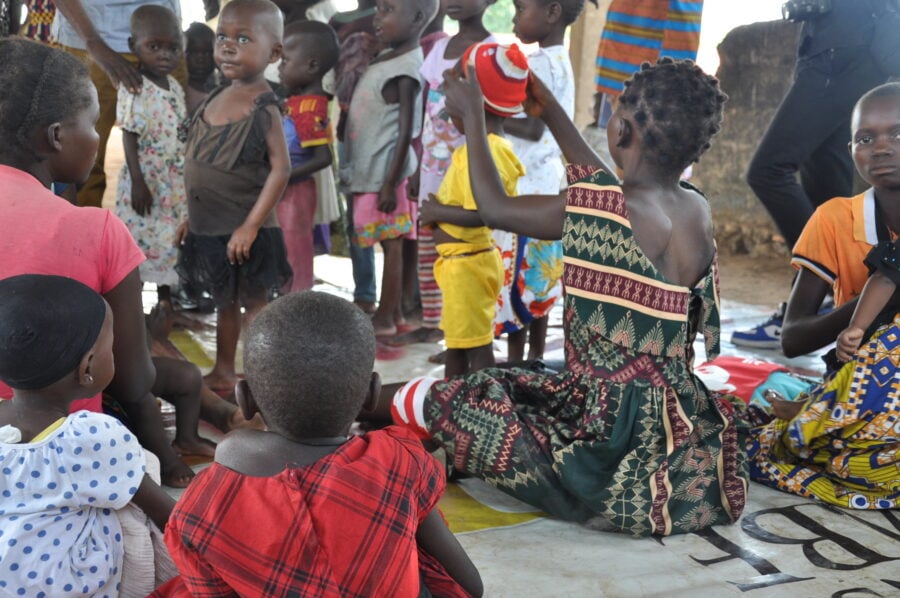
As important as food aid is, how sustainable is it?
Of course, we also try to work beyond acute care. It must be clearly seen that it is not enough to feed children, other measures are needed.
What measures do you mean?
In some cases, more comprehensive care is already possible. One woman who was in a really bad situation with her daughter, we were able to provide some land and train her to grow soy. We need to create opportunities like that. In the future, we would like to reach a home to house children. Many are orphans. They live in places where they are treated very badly. When they are with us at the center, we have to send them back to their places of residence. This is stressful. We are now looking for a place for a home and we are thinking about how we could implement this.
If you had more financial resources, would the Women's Federation be able to expand the project?
Yes, definitely. This year we received 5000 francs from a fund of Mission 21, and a contribution of 25,500 francs is budgeted for next year. That helps enormously, especially we can plan ahead.
What motivates you to do this work? What gives you the strength to continue?
The love of God. And the situation: when you see children dying because they have nothing to eat, it is not an option not to act!
One could also resign...
In fact, we also bear risks. If a child gets diarrhea after eating at our center, for example, we are quickly discredited and vulnerable. But there are also encounters again and again that give us courage.
Can you tell about an encounter like that?
I am thinking of little Ruth. She was left with us, severely malnourished and obviously abused and traumatized. But in the meantime she was taken in by a family from the Women's Federation. We were able to send her to school and she recovered very quickly. Seeing this is encouraging.
What other projects are part of the work of the Women's Federation?
At the CEK, various projects interlock. We work with the Agriculture project, the Education- and the Health project together. Among other things we offer Vocational training for women in tailoring, bakery crafts and home economics. It is always about helping the women to become independent. Many are dependent because of poverty and become pregnant because they are sexually exploited. We want to counteract this. Through our work with the women at the grassroots level, we see which problems are particularly pressing and can address them in cooperation with the various projects of the CEK.
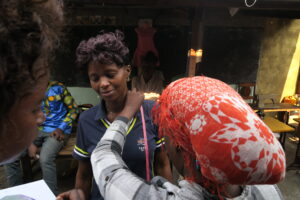
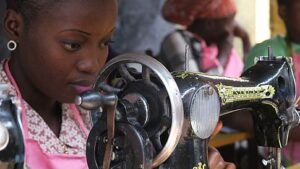
Thank you very much for the interview!
Thank you for supporting our work!
Interview: Miriam Glass/Mission 21
> Here you can find more information about the project
> Yes, I would like to support the people in the DR Congo.
